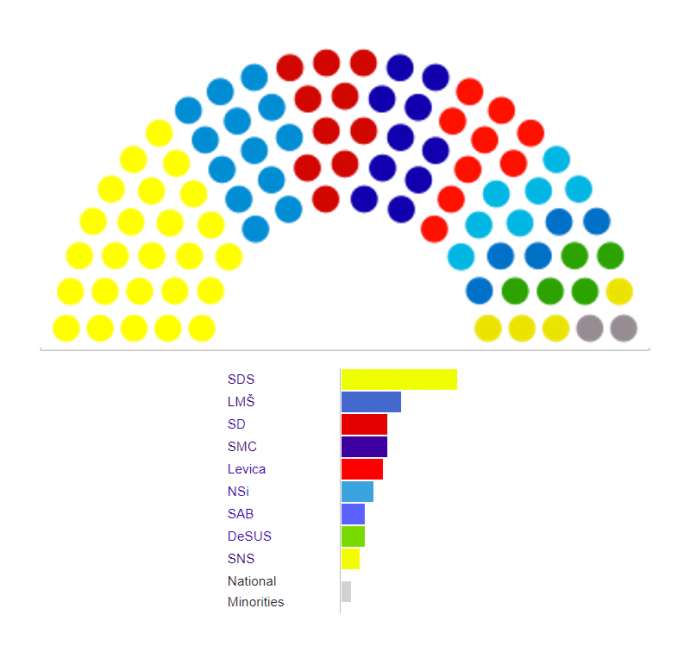STA, 17 December 2020 - The Pensioners' Party (DeSUS) left the government coalition on Thursday and its top decision-making body also backed party leader Karl Erjavec as a candidate for prime minister-designate. The move brings the informal Constitutional Arch Coalition (KUL) a step closer to a no-confidence vote, but it remains several votes short of a majority.
Erjavec explained that DeSUS was exiting the coalition because of the critical situation in Slovenia, adding that the reason was not the epidemic or work of individual ministers, but the policies pursued by Janša.
"We don't have any major remarks as far as the coalition agreement is concerned, but the problem is in procedures bypassing the coalition agreement, especially when it comes to ideological topics and interference in the media."
Erjavec also mentioned the developments in the police and "huge pressure on all important social sub-systems", adding that "we don't want an 'Orbanisation' of Slovenia, and autocratic system".
As for foreign policy, DeSUS wants Slovenia to "hop back onto the Franco-German train and we want to be in the group of core EU countries". For this to happen, Slovenia needs a different government, he said.
Two of the five DeSUS MPs backed the decision by the party's council, and while Erjavec expects the deputy group to follow suit, this is not certain yet.
Two MPs have not made their position clear yet, while one, Robert Polnar, has publicly stated he will continue supporting the coalition and is expected to be excluded from the party and the deputy group shortly.
The two DeSUS cabinet members, Health Minister Tomaž Gantar and Agriculture Minister Jože Podgoršek, will not resign, according to Erjavec, who said it was up to the prime minister to decide when they would be dismissed.
Janša responded on Twitter by pointing to a provision in the DeSUS's bylaw which says that if the party leaves a coalition, the ministers must resign or lose their party membership.
"It is difficult to cooperate with someone who's not even in compliance with their own bylaws... Confusion is the last thing we need in this utterly serious situation."
The parties that make up KUL welcomed the decision and said they would now like to file a vote of no-confidence in the Janša government as soon as possible, presumably before the end of the year.
While they support DeSUS leader Karl Erjavec as a candidate for prime minister-designate, the formal decision is to be taken by the parties' top bodies.
All eyes will now be on the coalition Modern Centre Party (SMC), without which the centre-left does not have enough votes to topple the government.
SMC leader Zdravko Počivalšek said he wanted the party to remain in government to implement the coalition agreement and continue to fight the epidemic. "The times call for operative and substantive politics, not for toppling [the government] and for an ideological battle."
The SMC is very happy with how its agenda is being implemented in this government, but Počivalšek admitted it was "bothered by some moves by the main coalition party".
Unofficial information indicates the SMC deputy group could meet on Friday. According to multiple media reports, some MPs may be willing to defect to KUL, but it is unclear how many.
If four DeSUS MPs join the KUL coalition, it will still be three votes short of the 46 needed for the vote of no-confidence to succeed.
Additionally, one Alenka Bratušek Party (SAB) MP is reportedly seriously ill and is unlikely to be able to cast his vote given that a no-confidence vote requires a secret ballot, which is not something the current system of remote voting allows.
DeSUS's decision to quit the government does not mean the story is over, there is still a long way to a constructive vote of no-confidence in the Janša government, political analysts Rok Čakš and Aljaž Pengov Bitenc said.
They also see the Left as a source of instability in a potential new government.






